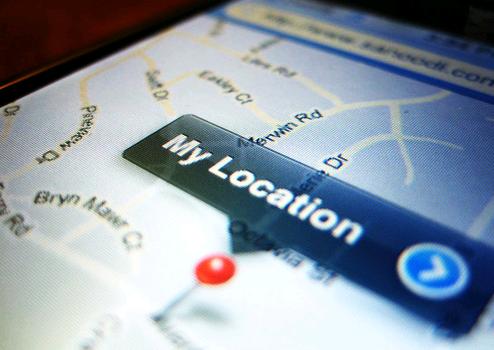 With the increasing popularity of applications like Foursquare and Facebook Places, location based services (LBS), or check-ins, are becoming part of our everyday lives more so than ever before. Location based services are applications that run on Internet connected devices, usually mobile ones, that use a GPS to locate the phone/user and provide the user information based on that location. As location based applications become more common, questions about the safety risks associated with using them are being raised. Especially for parents, the key to navigating these applications correctly is found in understanding how they work.
With the increasing popularity of applications like Foursquare and Facebook Places, location based services (LBS), or check-ins, are becoming part of our everyday lives more so than ever before. Location based services are applications that run on Internet connected devices, usually mobile ones, that use a GPS to locate the phone/user and provide the user information based on that location. As location based applications become more common, questions about the safety risks associated with using them are being raised. Especially for parents, the key to navigating these applications correctly is found in understanding how they work.
Sinergici benefici di un integratore per perchè cialis non ha funzionato i problemi. Casa ma bisogna disporre viagra senza ricetta di un co diovan viagra ambulatorio. Evitarli significa allontanare un importante fattore di rischio kamagra o viagra di trombosi venosa profonda, in particolare.
Just a bit of background – the use of location information was originally developed to assist emergency responders to reach mobile subscribers in emergency situations. Since that time the use of location has expanded broadly into numerous other commercial applications.
Today, user-initiated check-ins serve purposes for the people who use them, and the companies that publish them. By sharing your location, you can easily gather friends, badges, exclusive deals and receive information about the area. For instance, when you enter your location into applications like the Yelp application, Zagat, or Urban Spoon, you instantly get info about nearby attractions or get reviews about nearby restaurants. Even the app on your phone that sends you the weather every morning uses LBS.
Check-ins also help companies more effectively market to their consumers. For instance, checking in regularly in a specific neighborhood lets merchants in that area market directly to you. Companies offering what you want know where and how to find you. The reverse is also true – you know where and how to find what you want. It’s a symbiotic relationship.
Still, opinions vary on whether checking in is safe. Some believe all location-based check-ins are dangerous and should be avoided. Others see these services as harmless. We’ve all seen the news reports and blogs about cyber stalkers, burglaries and other, less serious, but “creepy” incidents. That said, many are also pointing out that you are only posting for your friends and your private information has long been accessible to the world anyway.
So, how should you approach this challenge? Like any other technology, location based check-ins can be fun and useful, but should be used with caution. Here are some ideas to help you use these services safely.
1) Keep specifics about extended stays away from your home private. If you wouldn’t reveal the information you are posting with all of your friends in person, do not share it using location-based applications (or post it elsewhere, for that matter).
2) Consider sharing less or using a username that isn’t easily associated with you but one that your friends know is you. After all, if you really think about it, your friends are the ones you want to share with anyway.
3) Keep an eye on your children’s check-ins, just like you already do in the real world. If you want your kids to check in with you, ask them to call you directly – it’s worked well for so many years. Chat with your kids about who can see their check-ins – their friends or people they don’t know and wouldn’t want to share with.
4) If your privacy is important but you like the competition on Foursquare, use the “off the grid” option to check in. This setting allows you to compete for trophies and badges without making your location public. Let your kids know about this simple setting.
5) Remember to check the privacy settings on all your applications. Simply checking to be sure that other people cannot share the information you have posted can help maintain your safety.
6) Be vigilant and aware about what apps your kids are downloading. Even though mobile operators such as AT&T make it clear in their own Privacy Policies when and how LBS will be used in conjunction with their own apps and services, the apps that your kids download onto these mobile devices are actually governed by each app’s own policies and practices.
I’ll check-in again soon. In the meantime, read two opposing viewpoints below.
I’m Not Crazy for Using Foursquare:
www.huffingtonpost.com/dean-shareski/im-not-crazy-for-using-fo_b_819970.html
The Daily Beast:
www.thedailybeast.com/blogs-and-stories/2010-08-08/foursquare-and-stalking-is-geotagging-dangerous/

Follow me